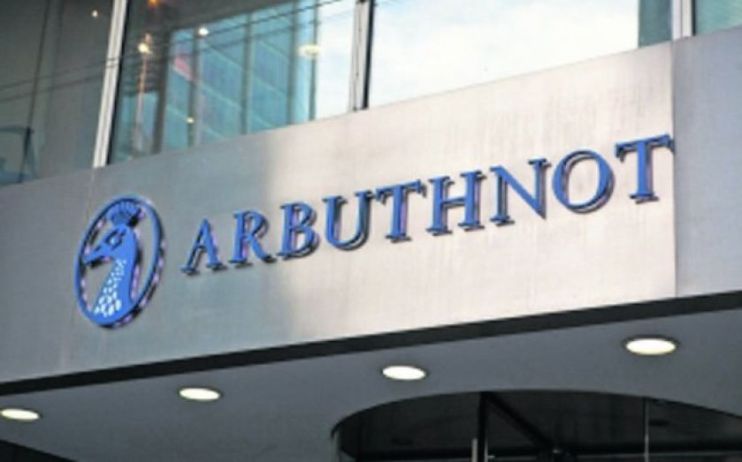Arbuthnot shares soar after profits leap from £3.4m to £26.4m – but it warns of risks ahead

Arbuthnot Banking Group’s pretax profit soared in the first half of the year as rising interest rates helped it record a huge increase in profit.
Pretax profit multiplied to £26.4m in the six months to June, up significantly from the £3.4m it recorded last year. On the back of this it upped its interim dividend to 19p compared to 17p last year.
Its shares were trading nearly 13 per cent higher on Tuesday morning.
The historic private and commercial bank has benefitted significantly from the Bank of England’s interest rate hikes, which have increased revenue on both Arbuthnot’s lending and its excess liquidity. Arbuthnot’s net interest income doubled compared to last year.
But chief operating officer Andrew Salmon said “this isn’t just higher interest rates”. He argued that the bank was in a significantly stronger position from five years ago, when it sold its stake in Secure Trust Bank.
Since then it has deployed the capital from the sale to grow substantially. “This business has grown substantially. It now deploys about five times more capital than it had six years ago. That’s a huge increase,” Salmon said.
In particular Arbuthnot has grown its offering to small businesses. “We’re definitely the beneficiary of the bigger banks trying to industrialise how they deal with SMEs,” Salmon said.
Arbuthnot saw a 16 per cent increase in customer deposits over the period, with chair Sir Henry Angest commenting “the strength of a bank should be measured against the quality of its deposit base”.
Customer loans also increased seven per cent compared to last year despite a “tighter credit appetite”.
Reflecting the rising base rate, Arbuthnot has lifted the interest rates paid to clients. The bank noted that the deposit market remains “extremely competitive” with many offers for one year deposits higher than the base rate.
Over the second half of this year, Arbuthnot will face an increase in the total cost of funding as cheaper deposits are replaced with deposits at higher rates.
Rising interest rates will also likely lead to an increase in credit risk. Although the bank has not seen a “significant deterioration” in its portfolio, it warned there is “early evidence” of pressure on affordability.
Salmon suggested that it was a matter of time before more problems emerged. “Our view is don’t underestimate time lags. These things just don’t react that fast. And the idea that interest rates can reach these levels and it doesn’t have any impact I think is illogical,” he said.
Provisions for expected credit losses climbed to £3.3m, up from £1.6m in the same period last year. The bank has also tightened its credit appetite, targeting a loan-to-value ratio on residential investment of around 50 per cent compared to 60 per cent previously.
Salmon highlighted that the bank does not lend in the commercial real estate market, which is likely to come under significant strain. “We’re relieved that we’re effectively not in the commercial property market…That’s normally the one in the downturn which begins to get really impacted,” he said.
Arbuthnot said its “improved profitability and robust financial strength” mean it is well positioned to weather the storm.